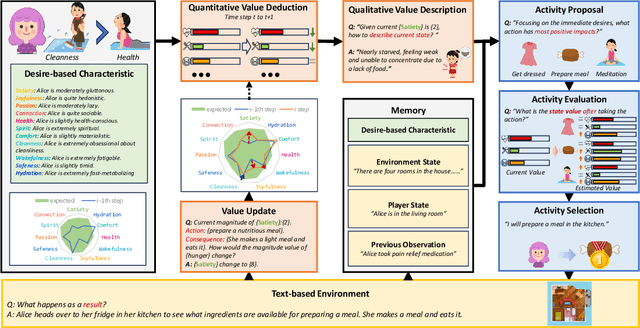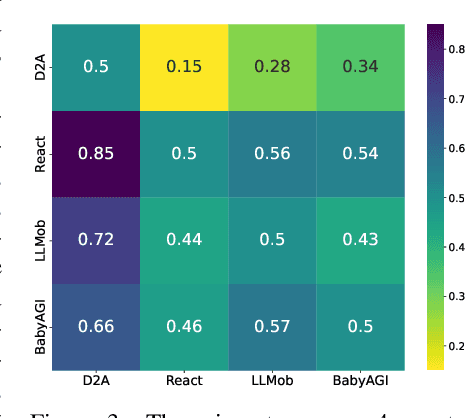Simulating Human-like Daily Activities with Desire-driven Autonomy
Paper and Code
Dec 09, 2024



Existing task-oriented AI agents often depend on explicit instructions or external rewards, limiting their ability to be driven by intrinsic motivations like humans. In this paper, we present a desire-driven autonomy framework to guide a Large Language Model-based (LLM-based) agent to simulate human-like daily activities. In contrast to previous agents, our Desire-driven Autonomous Agent (D2A) operates on the principle of intrinsic desire, allowing it to propose and select tasks that fulfill its motivational framework autonomously. Inspired by the Theory of Needs, the motivational framework incorporates an understanding of human-like desires, such as the need for social interaction, personal fulfillment, and self-care. Utilizing a desire-driven task generation mechanism, the agent evaluates its current state and takes a sequence of activities aligned with its intrinsic motivations. Through simulations, we demonstrate that our Desire-driven Autonomous Agent (D2A) generates coherent, contextually relevant daily activities while exhibiting variability and adaptability similar to human behavior. A comparative analysis with other LLM-based frameworks demonstrates that our approach significantly enhances the rationality of the simulated activities.
 Add to Chrome
Add to Chrome Add to Firefox
Add to Firefox Add to Edge
Add to Edge